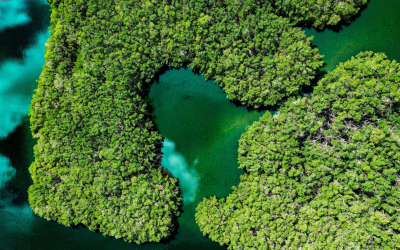UN Environment launches $1 billion fund for sustainable farming
UN Environment partnered with Dutch financial institution Rabobank to establish a $1 billion fund offering grants and loans to businesses interesting in investing in sustainable farming practices.

UN Environment partnered with Dutch financial institution Rabobank to establish a $1 billion fund offering grants and loans to businesses interesting in investing in sustainable farming practices.
The initiative was announced at the World Business Council for Sustainable Development plenary session, on Tuesday 17 October in Mexico City and was named Kickstart Food.
According to UN Environment, halting climate change along with an increasing agricultural footprint while ensuring growth in agricultural production to feed an estimated 9 billion people by 2050 will be among the biggest challenges of the 21st century.
The new scheme will be a $1 billion facility that aims to provide grants, loans and other forms of credit to agricultural producers that value sustainability.
Kickstart Food will run for 3 years focusing on 4 areas; earth, waste, stability, and nutrition.
According to the press release, the initiative will kick off with projects in Brazil and Indonesia.
In Brazil, the coalition will promote and, where feasible, finance integrated crop, livestock and forestry (ICLF) farming practices on the 17 million hectares of existing arable land under the management of Brazilian farmers financed by Rabobank, as part of the WWF-Rabobank partnership.
In Indonesia, the programme will finance replanting schemes for smallholders in partnership with corporate clients, including forest and biodiversity protection, restoration, and certification of oil palm.
Wiebe Draijer, Rabobank CEO said: “As the leading global food and agriculture bank, Rabobank recognizes its responsibility to combine the long-term stability of food production for the growing global population and the transition to sustainable land use”.
“We welcome other major global players in the primary production, food industry, and financial institutions to work together with us”.
Erik Solheim, Head of UN Environment stressed the importance of support from other industry leaders and financial institutions.
He said: “We want the entire finance industry to change their agricultural lending, away from deforestation and towards integrated landscapes, which provide good jobs, protect biodiversity, and are good for the climate”.
“Sustainable land use and landscape restoration is also fundamentally about sound investments and good business. We want to speed up this trend so that it becomes the 'new normal' for the finance industry”.
Agriculture is considered the second largest driver of human-activity driven climate change, and currently, represents almost 25 percent of total greenhouse gas emissions.
Meantime, there are more than 800 million people not having regular access to food, and more people will need to be fed in the future.
Wiebe Draijer added: “It is clear that a different way of agricultural practices is needed that includes incentives and provisions to protect forest ecosystems and restore degraded lands if we are to meet the 2030 Sustainable Development Goals as well as keep global temperature rises to below 2˚C as agreed in the Paris Climate Agreement”.
Erik Solheim, Executive Director, UN Environment will give the Opening Keynote of the 8th Sustainable Innovation Forum, taking place in Bonn Germany, 13-14 November alongside COP23, addressing adaptation, mitigation, climate finance and measureable global action. Learn more about the high level event by visiting http://www.cop-23.org. ;




